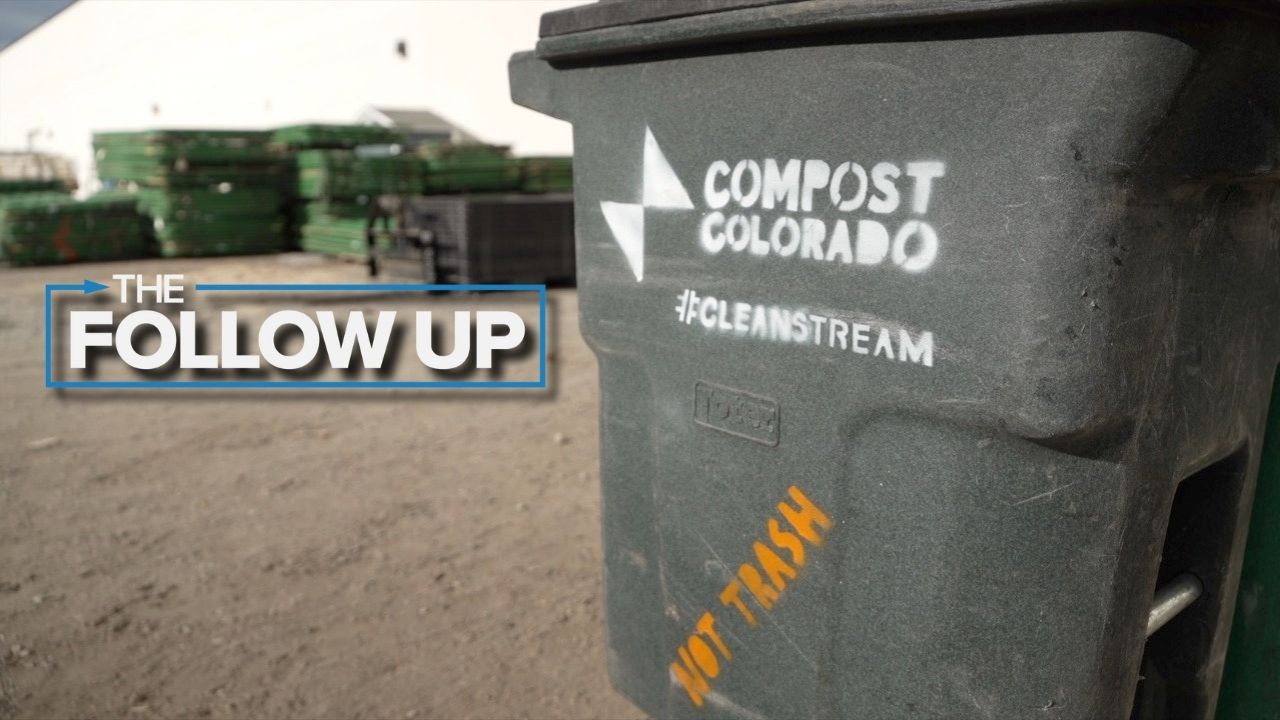DENVER — In North Denver, shipping containers double as Compost Colorado’s new processing center.
The site — made possible through a partnership to "close the waste loop" on the National Western Center campus — uses “continuous flow in-vessel composting units that create the most ideal conditions for the composting process,” Compost Colorado executive director Noah Kaplan told Denver7.
“That auger that you see moving up and down is going to agitate and move the material to make sure the right combinations of moisture, nitrogen, carbon and oxygen are allowing this to cook at its most ideal state,” he explained. “At the end of it, you've got wonderful, rich, hot compost.”

That goal of keeping organic waste out of landfills — and heat-trapping methane gas out of the atmosphere — is getting a big boost in Denver after a long wait.
Nearly three years ago, roughly 70 percent of Denver voters approved the city’s Waste No More initiative. This week, the Denver City Council finally approved the initiative’s requirements and timeline.

Denver
City of Denver still working to implement voter-approved recycling ordinance
The law requires apartment buildings, restaurants, commercial businesses and permitted events citywide to provide recycling and composting services. Construction and demolition sites will now have to separate recyclable materials, as well.
The city may be lagging behind its goal to recycle or compost 50 percent of its waste by 2027, but environmental advocates see this as a long-awaited solution to get there one day.
“I’m just so excited that we are finally at this point,” said Brian Loma, waste diversion advocate with the group GreenLatinos. “We get to help lead and be the leader that Denver needs to be, reducing our waste, our greenhouse gas emissions.”

Denver7 is getting answers as to why the city council’s approval took so long after voters voiced their approval.
Denver Mayor Mike Johnston’s office told Denver7 that once voters approve an initiative, it’s up to the city to build a policy around it, and this process took time to balance advocates’ environmental concerns and the business community’s financial concerns over costs imposed by the new requirements.
The Mayor’s Office sent Denver7 the following statement:
"This ordinance shows Denver can be a city that is both climate-friendly and business-friendly. While we are excited to see composting and recycling expand across the city, we are also mindful of the challenges inherent in running a business and will maximize exemptions and take an education-based enforcement approach to protect our smallest restaurants from costs they are unable to shoulder."
With the support of the business community, the city previously proposed a widespread Waste No More exemption for smaller restaurants with fewer than 25 employees making less than $2 million in annual revenue, accounting for roughly 16% of the city’s restaurants.
Advocates argued that it would be too large a carve-out and go against what voters wanted. That large exemption is now off the table, though businesses can still claim economic hardship and ask for an exemption.
But advocates like Loma say that as the infrastructure for recycling and organic waste diversion gets built up, it’ll be easier and cheaper for more businesses to pitch in.
“All these businesses coming online and beginning to [recycle and] become organic materials diverters will reduce the cost in the long haul,” said Loma. “We're so grateful, not only for the people and the voters that made this happen, but to the municipal workers and the business leaders that are going to make this a reality.”
Enforcement of the requirements, which the city says will be “education-based,” is set to begin in September 2026.
-
Click here for more stories Denver7 revisited

-

The Follow Up
Denver District 10 pet owners eligible for free pet deposit assistance
-

Local
Customers push back on Xcel power shutoffs during PUC feedback session
-

The Follow Up
Loveland scraps plans for permanent homeless shelter after nonprofit backs out







